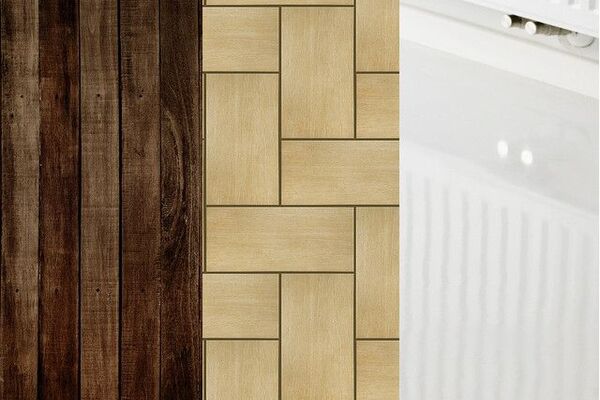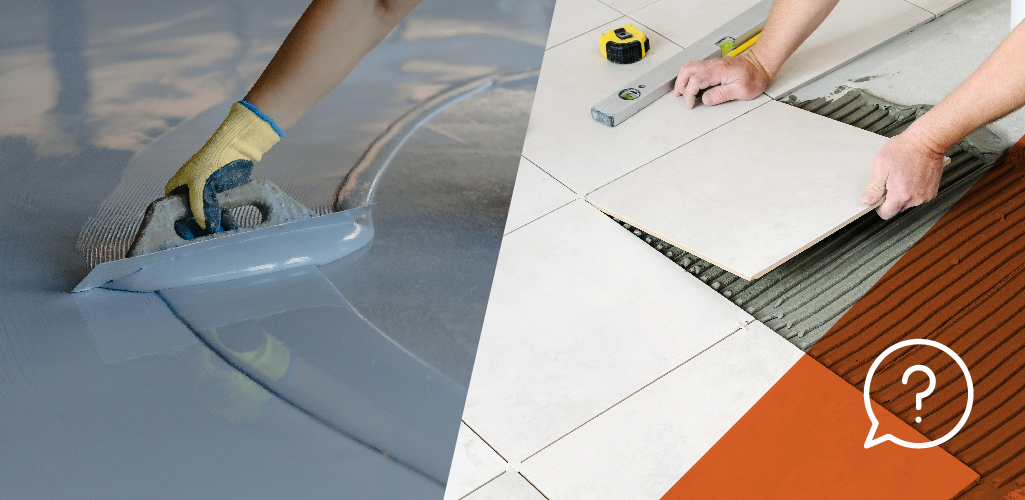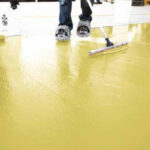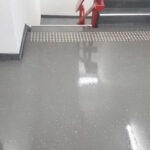When it comes to flooring, there are countless options to consider. From traditional hardwood and tiles to modern epoxy finishes, the choice can feel overwhelming. If you’re trying to find the best value for your money, it’s essential to weigh the costs, benefits, and long-term value of each option. To assist you in making an informed choice, we’ll compare epoxy flooring with traditional flooring in this guide.

Understanding the Basics
Before diving into the budget comparison, let’s understand the differences between epoxy and traditional flooring.
Epoxy Flooring:
Concrete floors can be coated with epoxy, a resin-based coating that leaves a glossy, smooth, and incredibly durable surface. It’s often used in commercial spaces, garages, and basements but is increasingly popular in homes due to its modern appeal and resilience.Traditional Flooring:
Traditional flooring options include hardwood, tile, carpet, and vinyl. These materials have been used for decades and are commonly chosen for their aesthetic appeal, warmth, and familiarity.Initial Costs – What’s the Investment?
Epoxy Flooring Costs:
The upfront cost of installing an epoxy floor can vary based on the quality of materials and the complexity of the installation. Generally, you can expect to pay between $3 to $12 per square foot, making it a relatively affordable option compared to high-end traditional flooring.Traditional Flooring Costs:
While tile costs anywhere from $5 to $15 per square foot, hardwood flooring usually cost between $6 and $14. Carpet and vinyl are more budget-friendly but still require regular maintenance, which adds to their overall cost.Winner:
Epoxy flooring is generally more affordable upfront, especially when you factor in long-term savings.Long-Term Maintenance – Where Does Your Money Go?
Epoxy Flooring Maintenance:
One of the biggest advantages of epoxy flooring is its low maintenance. Over time, cleaning and upkeep will be simple because of its smooth, non-porous surface, which is resistant to spills, stains, and scratches.Traditional Flooring Maintenance:
Traditional flooring often requires more upkeep. Hardwood needs regular polishing and refinishing, tiles can crack, and grout can discolor. Carpet requires frequent cleaning, and vinyl may need occasional repairs.Winner:
Epoxy flooring wins again, as it requires minimal maintenance, saving you money and effort in the long run.Durability – Which Flooring Lasts Longer?
Epoxy Flooring’s Longevity:
Epoxy flooring is incredibly durable, with a lifespan of 10–20 years or more, depending on the level of foot traffic. It’s resistant to heavy impacts, chemical spills, and abrasions, making it ideal for high-traffic areas.Traditional Flooring Durability:
Hardwood can last up to 50 years with proper care, but it’s prone to scratches, dents, and water damage. Tile is durable but can crack, while carpet tends to wear out more quickly, and vinyl may peel over time.Winner:
While some traditional flooring can last longer, epoxy is far more resistant to everyday wear and tear, making it a more durable option overall.Aesthetic Appeal – Style vs. Substance
Epoxy Flooring Looks:
Epoxy flooring offers a sleek, modern finish that can be customized with various colors, patterns, and metallic effects, making it both functional and stylish.Traditional Flooring Styles:
Hardwood’s natural beauty, tile’s versatility, and carpet’s warmth make them attractive options. However, they don’t offer the same level of customization as epoxy.Winner:
It’s a tie. Epoxy wins for modern appeal and versatility, while traditional options shine for classic beauty.Safety and Comfort – Which Flooring Feels Right?
Epoxy Safety:
Epoxy flooring can be made slip-resistant, which is excellent for safety. It’s also easy to clean, making it suitable for people with allergies.Traditional Flooring Comfort:
Carpet provides warmth and cushioning, but hardwood and tile can be cold and slippery.Winner:
Epoxy offers safety features, but traditional flooring options might be more comfortable underfoot.Environmental Impact – Which Flooring Is Greener?
Epoxy Flooring’s Eco-Friendliness:
Epoxy flooring has low VOC (volatile organic compounds) options available and lasts a long time, reducing the need for replacements.Traditional Flooring’s Green Credentials:
Hardwood can be sustainable if sourced responsibly, while recycled carpets and vinyl options exist but aren’t as long-lasting.Winner:
Both can be eco-friendly, but epoxy’s long lifespan gives it an edge.Budget Breakdown – The Final Comparison
When comparing costs, installation, maintenance, and durability, epoxy flooring stands out as the smarter investment. For those in Long Island, finding professional and reliable contractors is crucial to ensure quality results.
If you’re ready to make the switch or want to explore more options, consider reaching out to the best Epoxy floor system contractors Long Island NY offers. These experts understand the nuances of epoxy installation and can guide you through the process, ensuring you get the most value for your money.
Not only do the top Epoxy floor system contractors Long Island NY have the experience and knowledge to deliver high-quality results, but they can also help you save in the long term by providing a durable, low-maintenance solution. Whether you’re upgrading a commercial space or looking to transform your home, partnering with trusted Epoxy floor system contractors Long Island NY ensures you receive a flooring solution that’s both cost-effective and visually stunning.
Conclusion
Epoxy flooring offers an unbeatable combination of durability, low maintenance, and affordability, making it an excellent choice for budget-conscious homeowners and business owners alike. While traditional flooring has its charms, epoxy stands out as a smart, long-term investment that won’t break the bank.
Ready to upgrade? Contact the experts today and discover how epoxy flooring can transform your space with lasting beauty and functionality.







